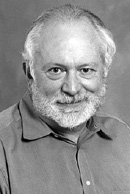
Conrad Joseph Bahre
Emeritus Professor Department of Land, Air and Water Resources
Conrad was born in Indianapolis, IN. He attended Verde Valley School in Sedona, AZ, where he was introduced to the arid landscape. He pursued an undergraduate degree at Indiana University, but he returned to Arizona for his master’s degree in geography at the University of Arizona. Conrad’s master’s thesis in 1967 examined historic changes in the Seri Indians of Sonora. He moved to the Geography Department at the University of California, Riverside for his doctorate to work with Homer Aschmann and continue his focus on arid landscapes. His PhD dissertation examining the human transformation of the natural vegetation of Coquimbo Province, Chile, was completed in 1974 and published in 1979. He joined the Department of Geography at the University of California, Davis in the fall of 1975. Conrad taught cultural geography, arid lands, cartography, and remote sensing. He enthusiastically pursued expanding the cartography and remote sensing facilities at UCD, and he devoted several summers to acquiring skills that equipped him to provide advanced instruction in these techniques. His research focus throughout his career was on the effects of historic land use on the landscape with a regional emphasis on southern Arizona. Among Conrad’s numerous publications, his A Legacy of Change, published in 1991, was considered a major contribution to understanding vegetation change in southeastern Arizona. Conrad’s passion for field research never declined and was evident in his publications, several of which appeared in the Association of Pacific Coast Geographers Yearbook. He was a loyal friend and a gracious host for frequent gatherings of colleagues and students. He was a gourmet cook at home, on research expeditions, and on hunting and fishing outings. In 1996, Conrad moved to the soils and biogeochemistry program in the Department of Land, Air and Water Resources at UCD where he continued his teaching and research until he retired in 2004. He returned to Tucson to enjoy retirement, to be close to the Arizona landscape he loved, and to be near his many friends and former colleagues in the Tucson area.
Marlyn L. Shelton
2018
